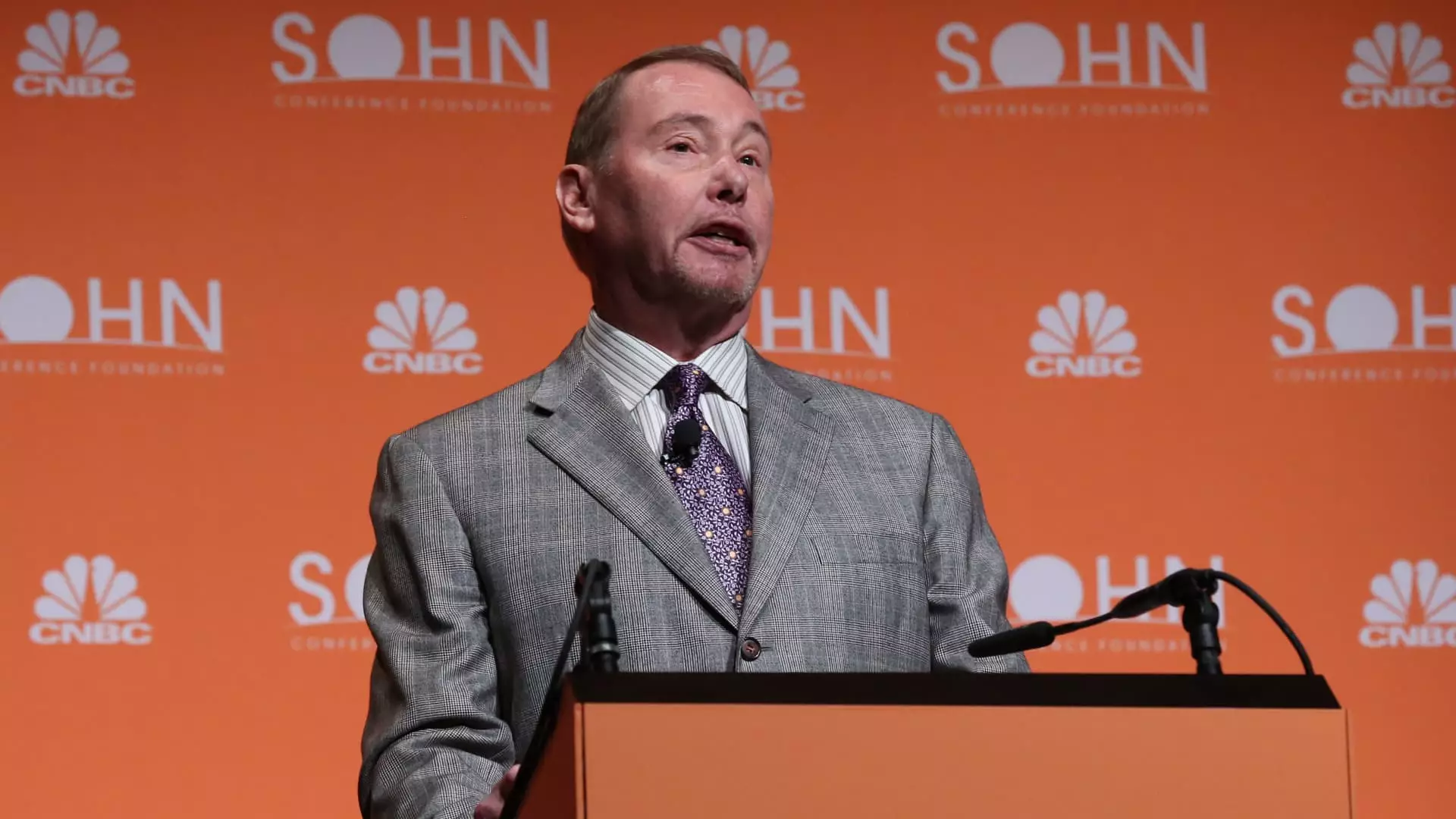The outcomes of political elections profoundly influence economic stability and financial markets. Recently, Jeffrey Gundlach, the CEO of DoubleLine Capital, emphasized the potentially significant impact on interest rates if Republicans were to secure control of the House of Representatives. In the face of a new Republican majority, Gundlach anticipates a surge in government spending orchestrated by President-elect Trump. With major fiscal policies aligned with expansionary spending, this scenario inevitably raises alarm bells regarding the long-term issuance of Treasury bonds to finance such endeavors.
Gundlach’s assertions point towards an increase in government borrowing, giving rise to concerns about burgeoning national debt, which already stands precariously at $36 trillion. As borrowing expands, yields on bonds are likely to rise, introducing higher interest rates that ultimately could affect various sectors, including housing and consumer spending. The interaction between fiscal policy and interest rates is complex, making the probability of these outcomes particularly important for investors.
The Federal Reserve’s Response to Fiscal Actions
In these predictions, Gundlach muses on how the Federal Reserve might react to a potential uptick in interest rates given the economic conditions resulting from a Republican-controlled House. The implications for monetary policy are significant if fiscal policy encourages an environment of increased government spending. With the Fed’s recent cuts to interest rates and further anticipated cuts in the subsequent years, the dynamics between monetary and fiscal approaches would be under severe scrutiny.
An essential consideration is how the Fed can manage inflationary pressures that may arise from higher borrowing costs associated with inflated fiscal measures. The interdependence of government spending and monetary policy is pivotal in shaping the outlook for both the economy and investors’ strategies. Gundlach speculates that the central bank will face a challenging landscape if government expenditure drives rates higher, complicating its existing low-rate strategy.
Tax Policy and Economic Outlook
Moreover, the talk of tax cuts further complicates this financial tableau. If the incoming administration pursues extensions of tax cuts or implements new fiscal stimuli, the immediate implications would be further deterioration of an already daunting budget deficit. Gundlach articulates that, although increased fiscal measures could exacerbate national debt, the probable outcome under a Trump-led government might mitigate the risks of a near-term recession.
Interestingly, while Gundlach’s predictions encompass a cautious outlook on interest rate increases, his commentary also reflects a degree of optimism regarding economic growth. The expectation that a Republican agenda could reinvigorate markets and sustain growth momentum highlights the duality present in economic forecasting—where potential threats coexist with prospects for resilience.
Ultimately, Gundlach’s insights serve as a stark reminder of the fragility and interconnectedness of fiscal policies, interest rates, and economic growth. As we watch these political machinations unfold, investors must prepare for potential volatility in both equity and fixed-income markets. The stakes have never been higher; the economic landscape will undoubtedly evolve based on these pivotal political outcomes, necessitating a comprehensive understanding of how government actions influence financial markets. In this context, Gundlach’s forecasts underscore the importance of remaining vigilant and informed as we navigate the complexities of modern economics.

